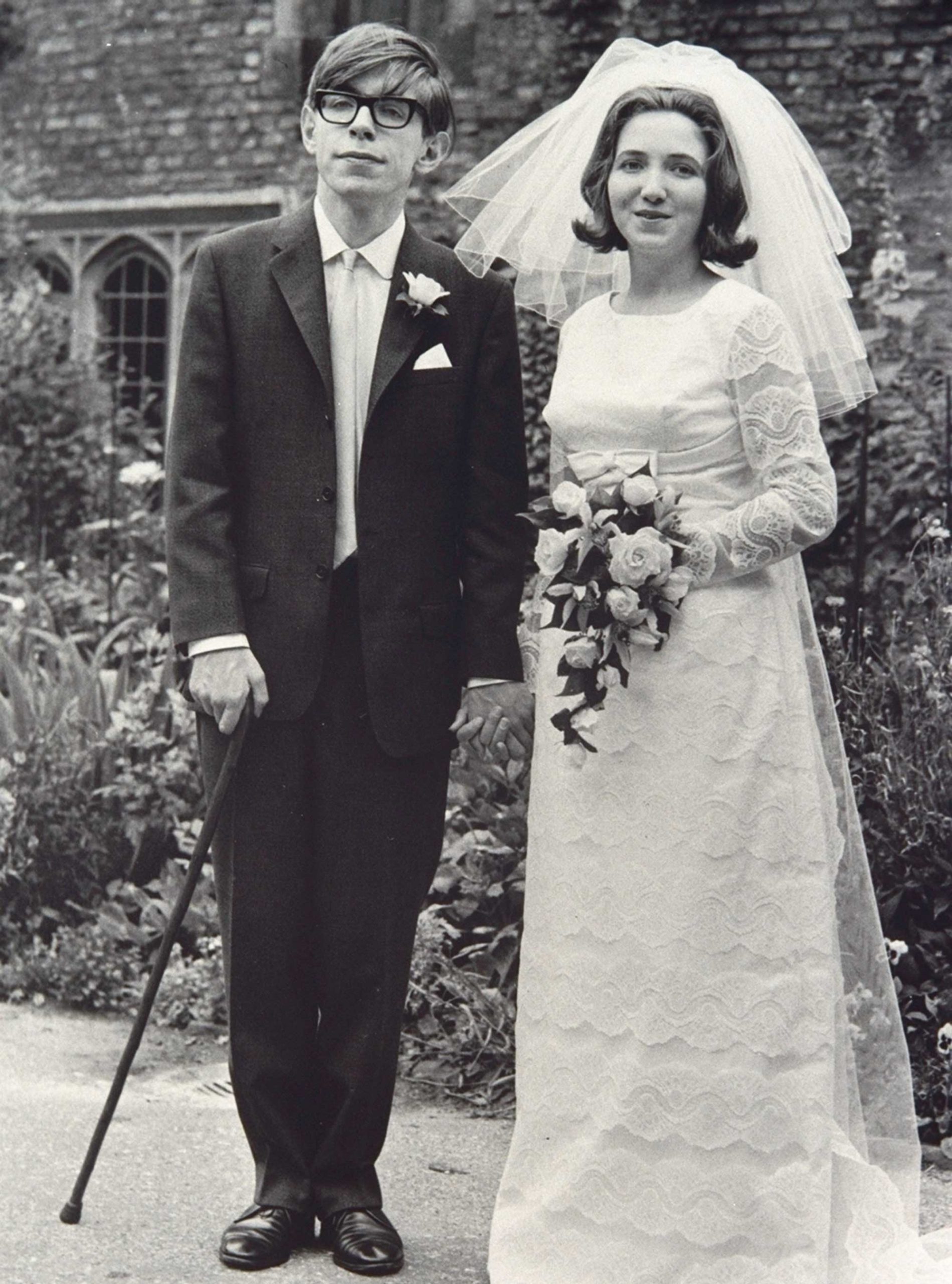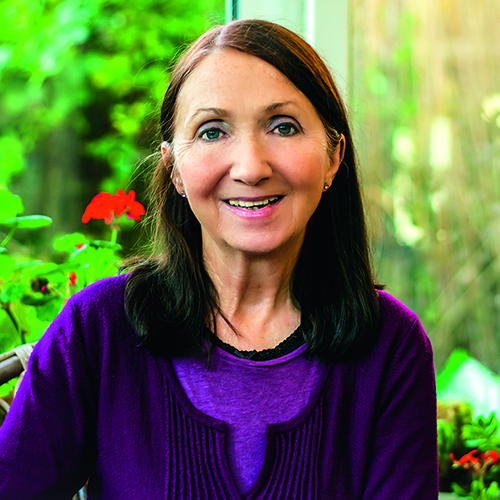The Real-Life Romance That Could Scoop An Oscar

Jane Hawking, 70, lives in Cambridge with her second husband, Jonathan Hellyer Jones. She and Stephen have two sons, Robert and Tim, and a daughter, Lucy. The film Theory Of Everything, which stars Felicity Jones and Eddie Redmayne, is based on her memoir, Travelling To Infinity: My Life With Stephen.
When Stephen and I first met at a New Year's Day party in 1963, I was immediately very drawn to him. He was standing in a corner regaling some friends with a story of how he came to be in Cambridge, having done a first degree in Oxford. He'd messed up his Physics final so the examiners called him in to try and decide whether this eccentric candidate should be given a pass or a first. Stephen told them if they gave him a first he would go to Cambridge, but if they gave him a pass he would stay at Oxford. So they gave him a first because they wanted to get rid of him, he said. It was just so funny - and he was so nice.
Watching some of the scenes of my meeting and the early years of Stephen unfold on film brought tears to my eyes because they were so true to real life. Felicity Jones came to dinner a few times and seeing her on film, a shiver went down my spine. I thought. 'Oh that's extraordinary - she's stolen my personality!' She had my body language and way I walk down to a tee. For much of the film, I sat there reliving our romance.

A couple of months after Stephen and I met, I heard that he had been diagnosed with some terrible incurable neurological disease and had been given two years to live. His illness began to be noticeable early on - when we first started going out, we'd meet in central London and more than once he stumbled and fell over in the street. But Stephen never wanted to talk about his illness, which I accepted.
My Parents, when I told them we were getting married, never once tried to deter me - my relationship with Stephen's parents was not so straightforward. They both went to Oxford and I sensed they did not approve of me because I was not an Oxbridge graduate. 12 years into our marriage his mother said 'I've never liked you - you do not fit into our family.' That felt incredibly hurtful.
There was always two other partners in our marriage: Stephen's illness, and physics. We lived in Cambridge because Stephen was doing a PhD there, and I soon realised that if I didn't have some academic pursuit I'd be a 'nobody'. Also things were declining quickly and I thought I might have to support the family one day, so in my early twenties I embarked on a PhD which I finished two days before my youngest son was born.
When the children came along I was completely besotted by them, but looking after three small children as well as Stephen was unbelievably difficult. Stephen choked at practically every meal and his voice was so indistinct that only a handful of people could understand him. When Jonathan came into our lives I truly believed he was heaven-sent. I met hi when I joined the church choir, which he ran. He was very sad because his wife has died of leukaemia a few years before. At that point in my life I was said and lonely too because I had become a carer for Stephen, and we were not able to communicate properly.
Sign up to our free daily email for the latest royal and entertainment news, interesting opinion, expert advice on styling and beauty trends, and no-nonsense guides to the health and wellness questions you want answered.
Jonathan wanted to help, partly as a way of dealing with his own sadness. He started helping with Stephen, doing the physical things like lifting him and chores that husbands normally do, like putting the bins out. Jonathan's kindness was a great therapy for me. I was aware very quickly that I has feelings for him, and I knew he felt the same way. But we just had to sublimate it. Jonathan went home each night and I stood beside Stephen and waved goodbye.
Then, in 1985, Stephen had a bout of pneumonia that left him so ill I was asked if I wanted to terminate his life support. I refused, and the consequence was his tracheotomy, which removed what remained of his speech. It was really dire for him; just dreadful. But, against all the odds, he pulled through and it was almost miraculous that a speech machine came from America and he could master the technology, which gave him his own voice.
The tracheotomy meant round-the-clock nursing care, and that was when things got very difficult. Pretty quickly, it was as if the family didn't exist. It wasn't Stephen's fault - he had no idea. I was so happy for Stephen when his career really took off with his book, A Brief History Of Time. But people assumed he was very wealthy and that attracted the wrong sort of carers. I tried to protect the children from the effects of Stephen's fame but it was very difficult.
In 1990, Stephen sent me a letter announcing his intention to leave the family home. Things had been difficult for a while and this was the end of our marriage but I felt neither sadness nor relief; I was numb. And Jonathan and I had never even contemplated the possibility of a future together without Stephen so we had no fantasies or dreams about it.
We divorced five years later. In that time, I began leading a normal life; a tremendous luxury after more than 25 years of a life that had never really been normal. Jonathan and I were married in 1997 and have always cherished our normality and our privacy. Stephen now lives round the corner. I still feel very protective towards him and I like to visit and make sure he is all right. The children love their father - and they adore Jonathan too. I'm very close to Lucy, who is a children's author, Robert works for Microsoft in Seattle and Tim is a successful marketing manager. I'm very proud of all of them.
I've always been an optimist, perhaps to my own cost. But justifiably so - because Stephen is still alive at the age of 73! And I've been very lucky: I have wonderful children and grandchildren, and I am married to Jonathan. So although we've had extremely difficult times, I've been given a happy ending.
The Theory Of Everything is in cinemas now. Jane's book is Travelling To Infinity (Alma Books)